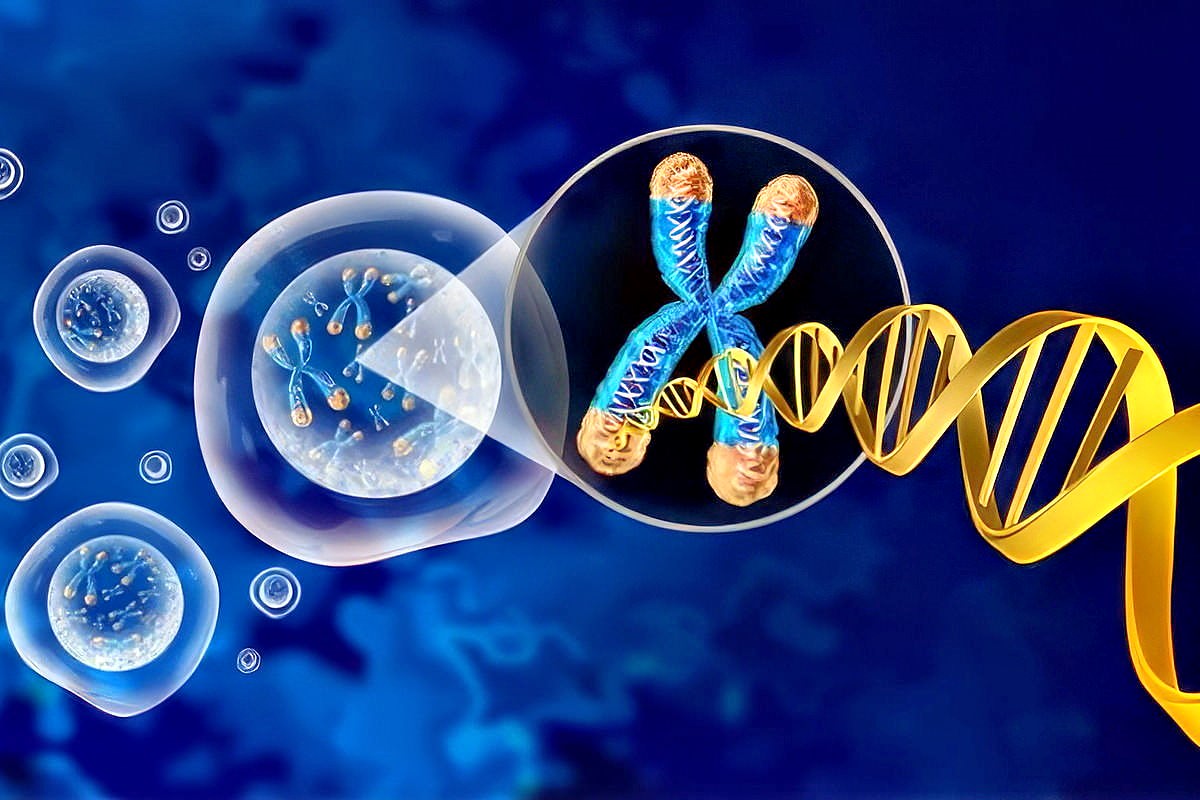🧬 What are Telomeres?
Telomeres are the protective caps at the end of our chromosomes, made up of repetitive DNA sequences that don’t code for anything. Their primary function is to safeguard the integrity of our genetic information during cell division. Without telomeres, our chromosomes would become unstable and susceptible to damage, leading to cellular dysfunction and premature aging.
🔍 Unraveling the Mysteries of Telomeres
The research on telomeres and their impact on aging is a relatively new field, and scientists are continuously making groundbreaking discoveries. In 2009, Elizabeth Blackburn, along with her colleagues, received the Nobel Prize for their pioneering work on telomeres and the enzyme telomerase.
🧬 The Telomere Length Puzzle
At birth, our cells have approximately 10,000 base pairs of telomeres. With each cell division, a small portion of the telomere is lost due to the inability of DNA replication machinery to copy the entire chromosome. As we age, our telomeres gradually shorten, and when they reach a critical length of around 5,000 base pairs, the cells enter a state of senescence, where they can no longer divide. This process is believed to be a significant contributor to aging and age-related diseases.
🔬 The Role of Telomerase
Telomerase is a remarkable enzyme that can counteract the shortening of telomeres by adding new repetitive DNA sequences to the ends of chromosomes. This enzyme is particularly active in germ cells (sperm and egg cells), allowing them to maintain their telomere length indefinitely. However, in most somatic cells (cells that make up our body), the telomerase gene is partially inactivated after embryonic development, leading to a gradual erosion of telomeres with each cell division.
🔄 Reversing the Aging Process?
One of the most exciting discoveries in telomere research is the potential to reverse aging by reactivating or introducing telomerase into cells. Scientists have successfully rejuvenated aged human cells by introducing telomerase, reverting them back to a stem cell-like state. In experiments with genetically engineered mice, researchers were able to reactivate telomerase, leading to the reversal of age-related brain shrinkage, organ damage, and even restoring fertility.
💆♀️ Stress: The Silent Ager
Stress has been identified as a significant factor in accelerating telomere shortening and reducing telomerase activity. Studies have shown that individuals who experience higher levels of stress, as measured by self-reported stress levels, cortisol levels, and physiological markers like heart rate variability, have shorter telomeres and lower telomerase activity, effectively aging faster at the cellular level.
🌱 Lifestyle Choices Matter
While telomere length is partly determined by genetics, our lifestyle choices can significantly influence the rate at which our telomeres shorten. Adopting a holistic approach that incorporates healthy eating habits, regular exercise, stress management techniques, and reducing exposure to toxins can help maintain telomere length and promote overall well-being.
💊 Supplementation and Cleansing
As our modern environment exposes us to various toxins and nutrient deficiencies, supplementation and periodic cleansing can support our bodies in maintaining optimal telomere function. Specific nutrients and compounds have been shown to enhance telomerase activity and protect telomeres from oxidative stress.
🏃♀️ Exercise: Finding the Right Balance
Exercise is a crucial component of a healthy lifestyle, but it’s essential to strike the right balance. While moderate exercise can stimulate the production of growth hormones and promote overall well-being, excessive or intense exercise can be stressful on the body, potentially contributing to telomere shortening. The key is to find the optimal exercise regimen that provides the benefits without overwhelming the body’s resources.
🌳 Embracing a Holistic Approach
Ultimately, maintaining optimal telomere function and promoting longevity requires a holistic approach that addresses all aspects of our well-being. By understanding the intricate mechanisms behind telomeres and their impact on aging, we can make informed choices to support our bodies’ natural ability to repair and regenerate at the cellular level.
Copyright © 2025 Hea1th.net

